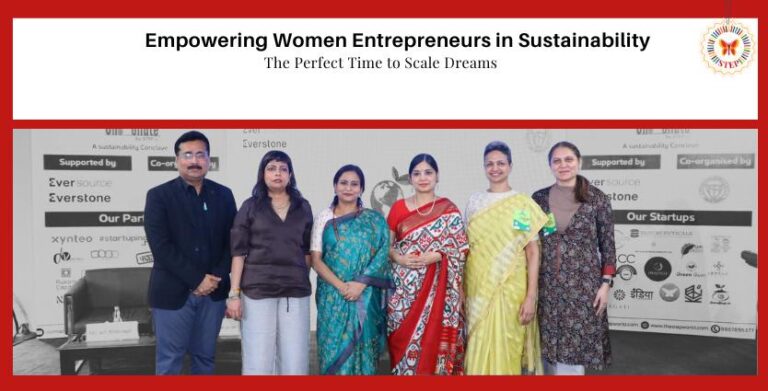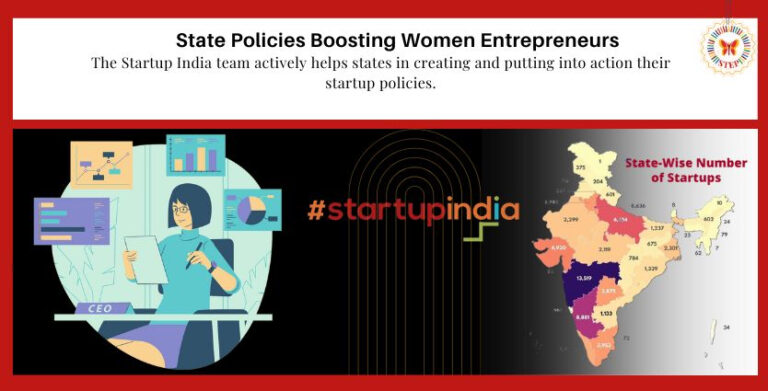How Ed-Tech is Reshaping Education and Fostering Entrepreneurship in India
India has a population of over 1.4 billion. When the last census happened in 2011, more than half the population of India was less than 25 years old and almost 2/3rd below 35 years old. India has a massive student population, too. In 2020, there were more than 1,000 universities, 42,000 colleges, and over 256 million children attending school, indicating enormous potential for education in the country.
Ed-tech, or Education Technology, refers to the application of information and communication technology tools into the classroom to create more engaging, inclusive, and individualized learning experiences. Ed-tech in India has grown phenomenally in the last couple of years, making it the ed-tech capital of the world.
According to a report by EBEF, the Indian ed-tech industry was valued at US$ 750 million in 2020 and is expected to reach US$ 4 billion by 2025 at a CAGR of 39.77%.
The major driving force has been the widespread availability of affordable internet and mobile devices. The COVID-19 pandemic catalyzed for the world to become familiar with online education, as the prolonged closure of schools made it necessary to adopt this approach. Currently, there are 4,450+ ed-tech startups in India, assisting approximately 300 Million School students.
Some of the ed tech giants in the Indian market are:
- BYJU’S: BYJU’S is the leading EdTech company in India. It offers a learning app for competitive entrance exams like the IIT-JEE, CAT, UPSC, GMAT, GRE, Engineering & Medical, and courses from grades 6 to 12. It provides online and tablet classes with multiple-choice questions, answer keys, and in-depth analysis.
USP: With 15 million registered users, they have 900,000 subscribers for an annual fee, and 85% renew their subscriptions.
- Unacademy: Unacademy, acts as an online learning marketplace for a range of courses. Itstarted as a YouTube channel that expanded to an online education platform. Students can follow tutors to receive direct instruction from them by watching the video tutorials, which are available in many languages.
USP: More than 30,00,000 students have received instruction from Unacademy.Over 2400 online courses (free and paid) are available on their platform.
- iQuanta: iQuanta is India’s largest online CAT preparation community. iQuanta has grown to include 3.5 lakh aspirants globally, resulting in 10,521+ IIM calls and 1000+ IIM converts in just 5 years.
USP: iQuanta operates as a community that brings together teachers and students for competitive exams. It has enrolled over fifteen thousand students into IIMs through its thorough courses.
- Trainer Central:
It is an online training platform that enables solopreneurs, edupreneurs, and anyone who wants to impart their knowledge to students globally.
The platform offers tools to assist trainers in creating a fully functional online training company with a wide range of integration capabilities. On a single, integrated platform, instructors can build their websites, upload content, design course curricula, conduct live classes, manage learner communications and certifications, take payments from learners, and much more.
USP: TrainerCentral allows teachers and solo entrepreneurs to reach a large audience with the minimum investment. They also provide a 15-day free trial to help you get to know the software.
The fastest-growing ed-tech sub-sectors in India and their major players are
SubsectorMarket Opportunity by 2030Major PlayersTest Preparation $9 bnUnacademy, stopper, Adda 247, NeoStencil, LeapScholarK12 $15 bn Byju’s, Vedantu, Physics Wallah, Cuemath, filoOnline certification $2.5 bnEruditus, upGrad, simplilearn, Nurtur, Sunstone, EduversitySkill Development $ 2.5 bnScaler, Newton School, masi, coding ninjas, esto
While the ed-tech industry presents significant opportunities for new entrepreneurs, there are several challenges they need to carefully consider before entering the market.
- Lack of Internet facilities: The lack of high-speed internet in tier 2 and 3 cities limits the reach of online learning.
- Absence of standardization: Online education offerings lack standardization, which can confuse and mislead customers. The quality of educational content provided by some ed-tech companies has been a concern. The lack of quality control and standardization in content creation can undermine the industry’s credibility.
- Inadequate trainers: Online instructors usually do not have formal training to deliver online training effectively.
- Preference to in-person training: Many people still prefer traditional in-person learning, and online learning requires a change in mindset.
- Unsustainable practices: Some heavily funded ed-tech companies have resorted to tactics like throw-away pricing and massive ad campaigns to boost growth. This approach is not sustainable and does not result in a positive return on investment. It can damage the credibility of the entire ed-tech sector.
- Competition from foreign players: Foreign players like Coursera, Udacity, and Lynda have access to more funds than most Indian players and are a big competition for Indian companies.
- Lack of funding: Although the Indian EdTech industry is growing tremendously, funding remains challenging. Most companies are still in their early stages and struggle to attract investors, hindering their growth potential.
Despite the challenges, entering the
ed- tech market in India can be a rewarding experience. Here is some advice for entrepreneurs who are looking to enter the sector:
Understand the market: India is a diverse country with different cultures and educational systems. Therefore, it is crucial to understand the market you are targeting and the needs of your audience. Conduct market research to identify the gaps and opportunities.
Choose the apt business model: There are different business models in the ed-tech space, such as B2C, B2B, or B2B2C. Choose the model that aligns with your goals and target market. For instance, a B2B model may be more suitable for targeting schools.
Leverage technology: The ed-tech space in India is rapidly growing, and there are various technological advancements that you can leverage to improve your product and services. Incorporate emerging technologies such as Artificial Intelligence (AI), Augmented Reality (AR), or Virtual Reality (VR) to enhance the learning experience.
Partner with stakeholders: Collaboration with stakeholders such as schools, universities, and education regulatory bodies can help you gain insights into the industry and build trust among your target audience.
Focus on quality content: Content is king in this space, and it is vital to create high-quality and engaging content that aligns with the needs of your audience. Invest in developing a robust content team to create compelling and interactive content.
Ensure scalability: It is crucial to ensure your business is scalable to meet the increasing demand. Focus on building a scalable infrastructure and robust technology to ensure that your business can accommodate growth.
Seek mentorship and support: Seek mentorship and support from industry experts, accelerators, or incubators. This can help you gain valuable insights and guidance to navigate the challenges.
Conclusion
The ed-tech industry in India has witnessed remarkable growth in recent years and is currently undergoing rapid evolution. Here are some of the latest trends in the sector:
- Personalized learning: EdTech platforms are providing personalized learning experiences to students with the help of AI and machine learning. These platforms use data analytics to understand students’ learning patterns and offer customized study plans and feedback.
- Gamification: Gamification is gaining popularity in Indian ed-tech platforms as it makes learning more engaging and fun.
- Virtual and augmented reality: Virtual and Augmented Reality create immersive learning experiences. This technology allows students to visualize complex concepts and engage with them more interactively.
- Adaptive assessments: Indian EdTech platforms are using adaptive assessments to measure students’ progress and provide targeted feedback to improve their learning outcomes.
- Online tutoring: Many EdTech platforms are offering one-on-one and small-group tutoring services.
- Upskilling and reskilling: With the rise of automation and new technologies, many people need to acquire new skills to stay relevant in the job market. Ed-Tech platforms are offering online courses and certifications to help people upskill and reskill.
As entrepreneurs venture into a dynamic and rapidly evolving ed-tech market in India, they must embrace emerging trends. They can align their solutions with the changing needs of learners and teachers and achieve better market capture.



